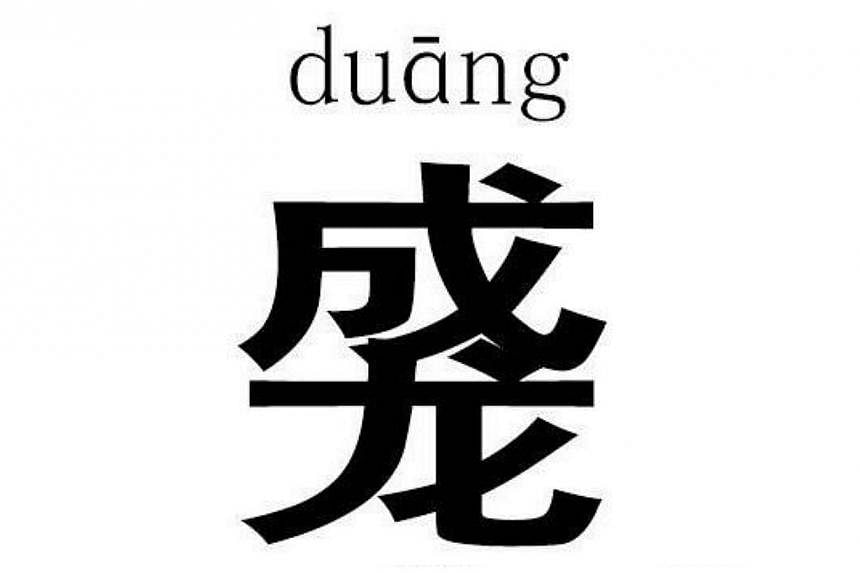To some Singaporeans, "duang" is local speak for lazing around or slacking off - a term most commonly used in the Army to describe skiving recruits.
But the Chinese have recently found a whole new meaning for it, even coming up with a brand new character that has taken social media by storm.
While the blue-white/white-gold dress went viral in the West, China has been obsessing over the new entry in the Chinese lingo.
The word, a combination of Jackie Chan's Chinese name "cheng" and "long" stacked on top of each other, was inspired by a memorable hair shampoo commercial featuring the Hong Kong star back in 2004.
In the advertisement, Chan can be heard uttering "duang" as he spoke in a rhythmic fashion about his sleek mop of hair.
"Initially, I didn't want to shoot this advertisement... after filming, visual effects are added, the hair - duang! - becomes black and shiny," he said, sporting a crop of luxuriant hair.
"Audiences would scold me, that there isn't such hair," he also said, adding though that he was satisfied with it after a month's use.
On Feb 24, a video parody of the advertisement appeared in which Chan confesses to having no hair at all, with the narration continuing as "after a month of special effects, hair is - dua-a-a-ng - still I knew they're fake, that it's due to chemicals. Every day now, I'm adding special effects... added a lot of effects... hair - duang duang duang - is thick and shiny."
Bawang was accused in 2010 of using cancer-causing chemicals in its hair products.
Last Thursday, as the term became synonymous with "to add special effects", Chan himself added "duang" on his Weibo.
"What's the meaning of duang" also became the No. 1 topic on Weibo.
According to the BBC, "duang" has been mentioned eight million times on micro-blogging site Weibo, spawned a top-trending hashtag and searched nearly 600,000 times on the country's search engine Baidu.
But how is it really used?
Some have employed it as an adjective to inject added emphasis to the following word - for instance, a puppy might be "duang cute".
The BBC suggests that it is an example of onomatopoeia - words which imitate the sounds associated with objects or actions - that can be used for dramatic effect, while others use it to describe a subject that has been faked or enhanced with special effects.


